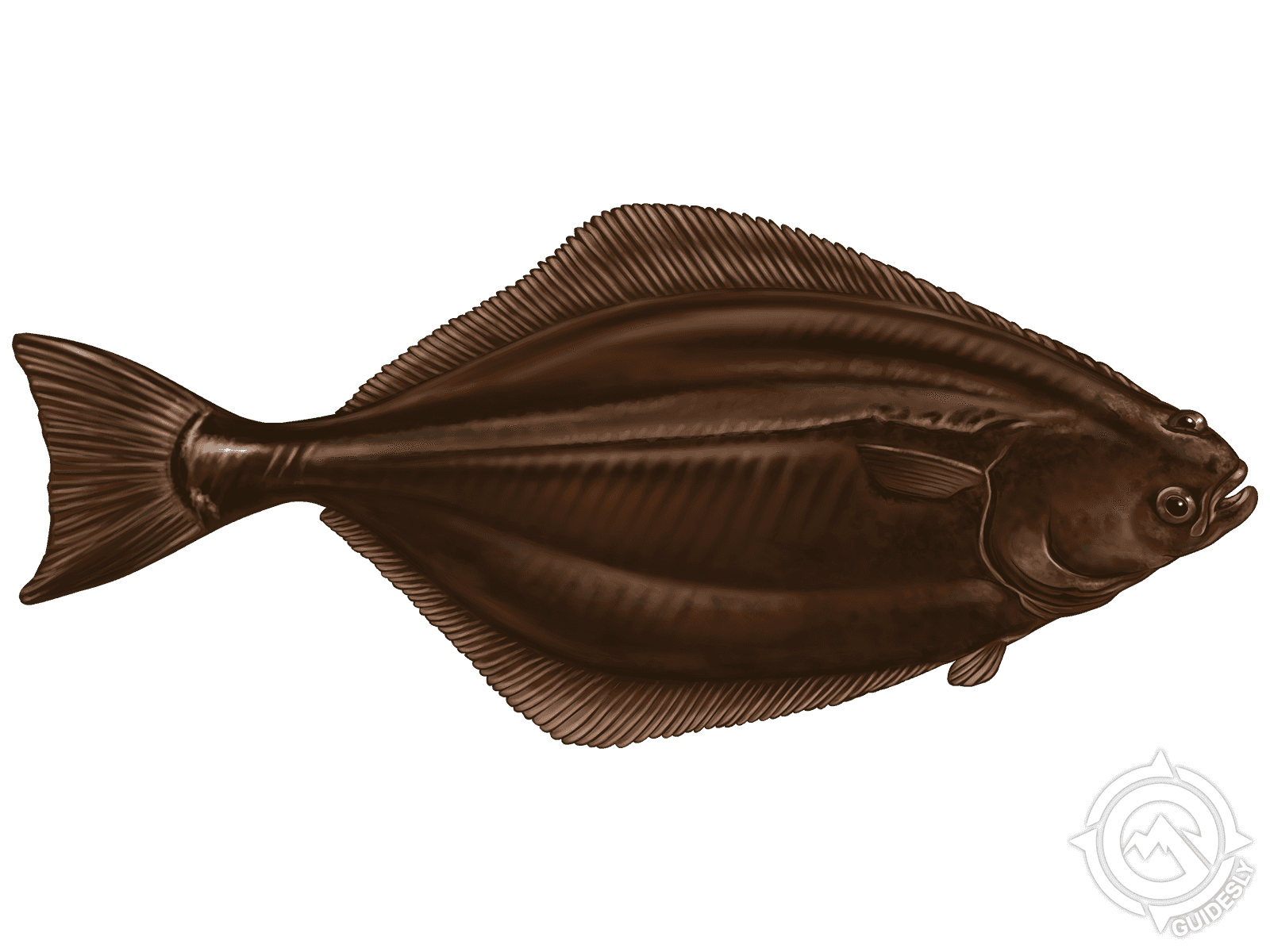Atlantic Halibut

Species Details
Hippoglossus Hippoglossus
Pleuronectidae
Pleuronectiformes
Nearshore, Offshore, Continental Shelf
30 - 150 lbs.
52" - 185"
Atlantic halibut (Hippoglossus hippoglossus) Fish Description
The Atlantic Halibut is the biggest flatfish species in the world (second is the Pacific Halibut). This fish is a strong swimmer, which is why it’s a popular game fish among anglers. It is deep brown with white and black spots, and its body is shaped like a diamond. It’s a saltwater fish that prefers temperate waters. They’re carnivorous and eats a variety of prey such as cod, haddock, pogge, sand eels, squids, and crustaceans.
Interesting Facts
- The Atlantic halibut is a delicacy in the cuisine world.
- They mature slowly, they’re only considered as adults at the age of 7-8 years and 10-11 for females.
- They are voracious eaters. The guts of the Atlantic halibut have been found with sea birds, wood, and even iron.
- The Atlantic Halibut practices external fertilization, meaning the females release eggs while the males cover the eggs with sperm to fertilize them.
Size
The Atlantic halibut is a large fish with small predators. They are estimated to get as long as 15 feet, but the biggest recorded so far is 8.2 feet and weigh as heavy as 720 lbs. They average 4.4 feet and weigh 30 lbs. The females are generally bigger and heavier than the males.
Habitat and Distribution
The Atlantic halibut can be found in the North Atlantic Ocean and some parts of the Arctic Ocean. In North America, their range is from Canada to Virginia. They thrive in cold temperatures of 37.4-41°F with depths of 160 to 6560 feet. Popular fishing spots in the U.S. and Canada are located in Massachusetts, New Hampshire, Maine, New Foundland, and Nova Scotia.
Adults are mainly benthic (living at the bottom of the sea) but will sometimes visit pelagic depths (coastal areas) to hunt.
Little is know about the spawning habits and the migration of the Atlantic Halibut. They spawn seasonally but vary from place to place. What is known is that they spawn in deep waters from March to June. They then head north and dwell in more shallow waters after spawning.
Atlantic Halibut Fishing Techniques
The Atlantic halibut is a tough swimmer, which is why it is prized as a game fish among anglers (make sure to make the fish tired before you haul it in, they’re known to have beak bones of careless fishermen). The best method to catch this heavy fish is through the drift method with a heavy rod. Let your boat slowly drift by the waves of the ocean and with your lure as well. Go for the sweet spot which is 150-500 feet deep. Don’t move it too much, since the waves will do the movement for you to attract the fish. Once it takes the bite it’s going to be a tough long battle with these powerful fish.
Using 6-7 foot heavy spinner rods with a 60 to 80 lb braided line is the appropriate choice for this large fish but it is possible to fly fish an Atlantic Halibut. Like its close relative, the Pacific halibut, the key to fly fish a large deep-dwelling fish like the Atlantic halibut is to keep the rod at the bottom. We recommend a 50-pound monoline with fast sinking heads attached to a 12-15 heavyweight rod. Use sinker like a 16-lb snippet to help you get to a nice depth. They have large mouths so use a 4/0 hook.
The recommended baits are a variety of baits together such as squids, slice mackerels, and herring, and octopus. Like the Pacific halibut, it is advised to use some fishing attractant to get the attention of the Atlantic halibut. For lures, you can use jigs such as heavy jigs, swim jigs, deep drop jigs, and pipe jigs.







